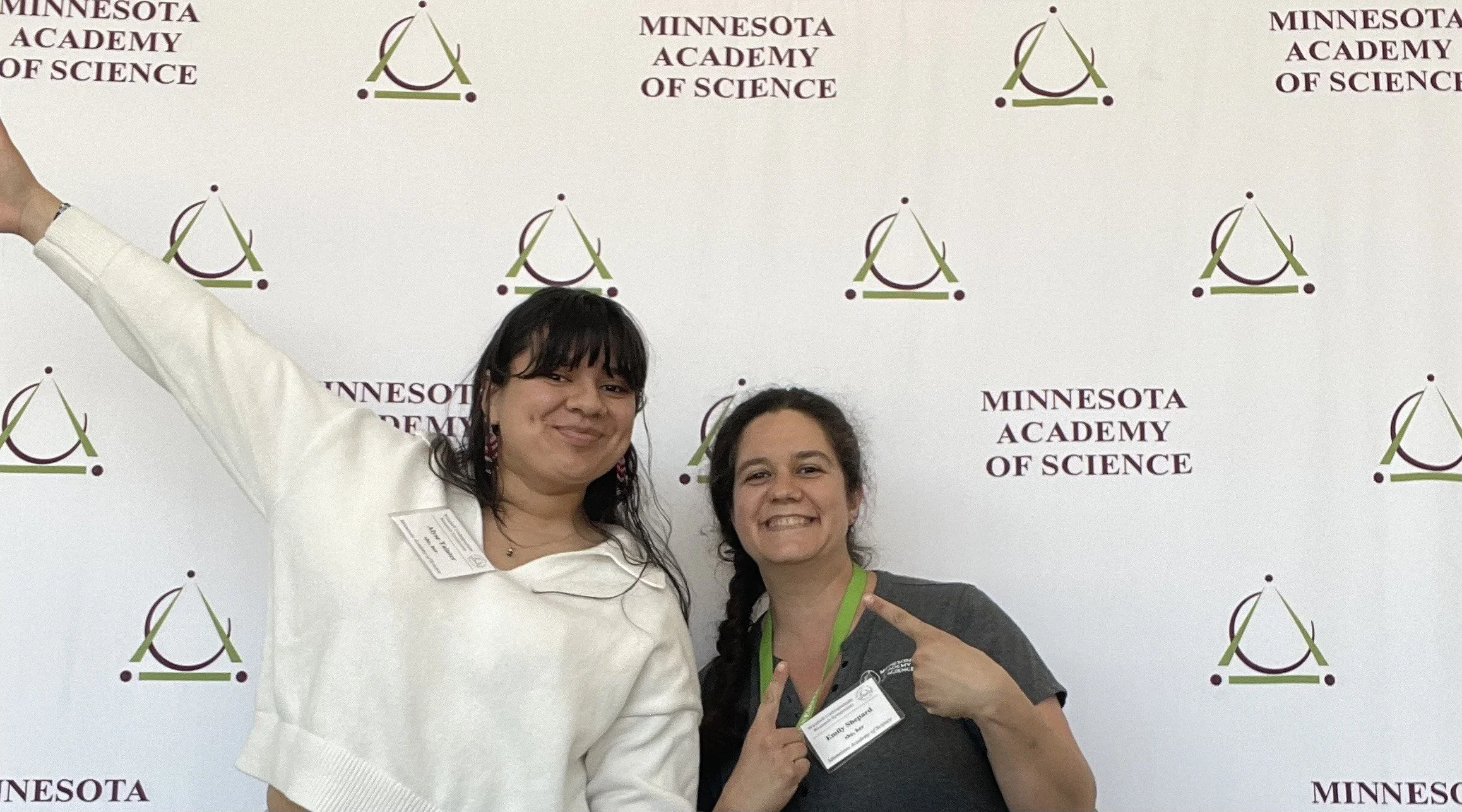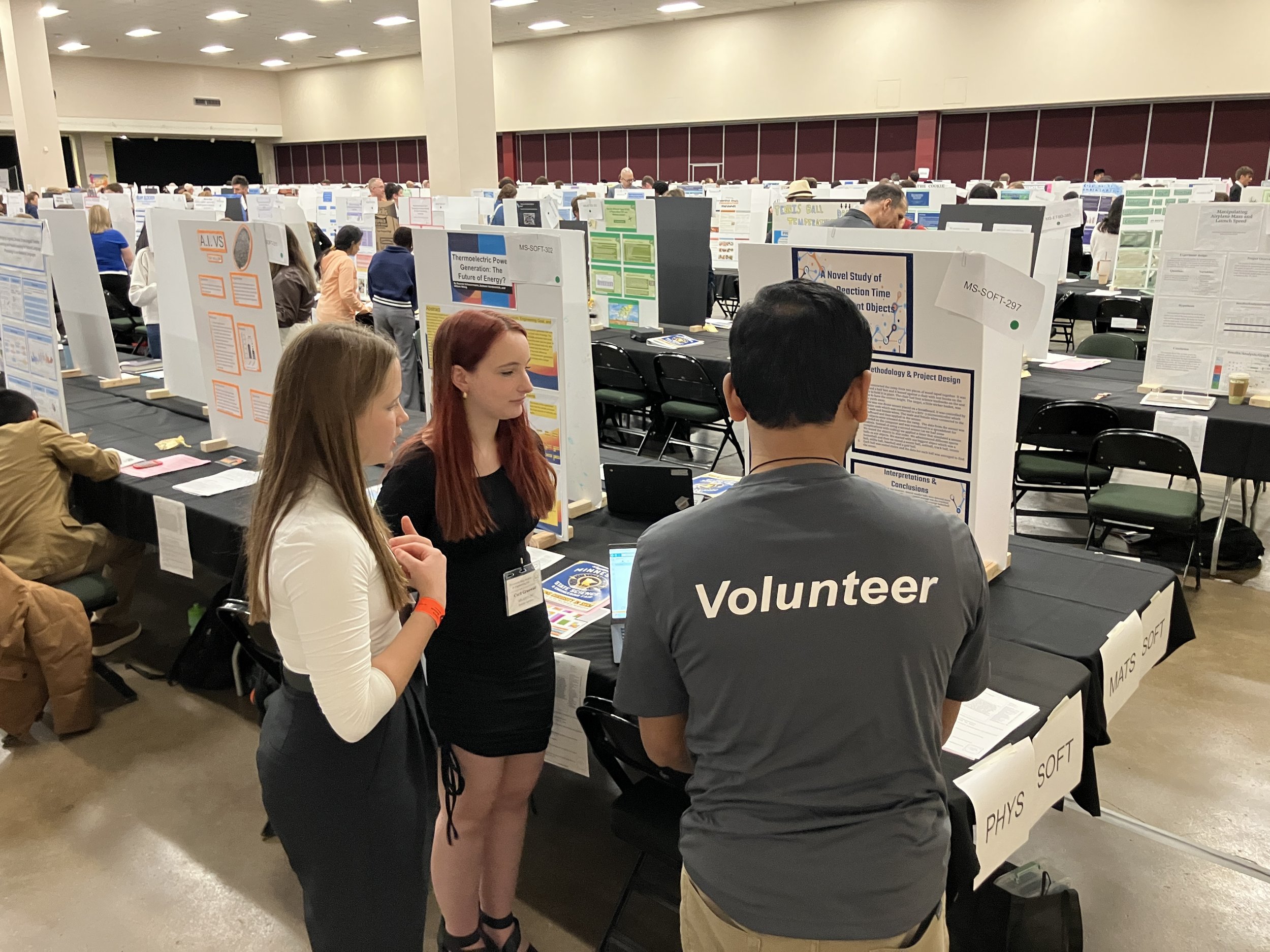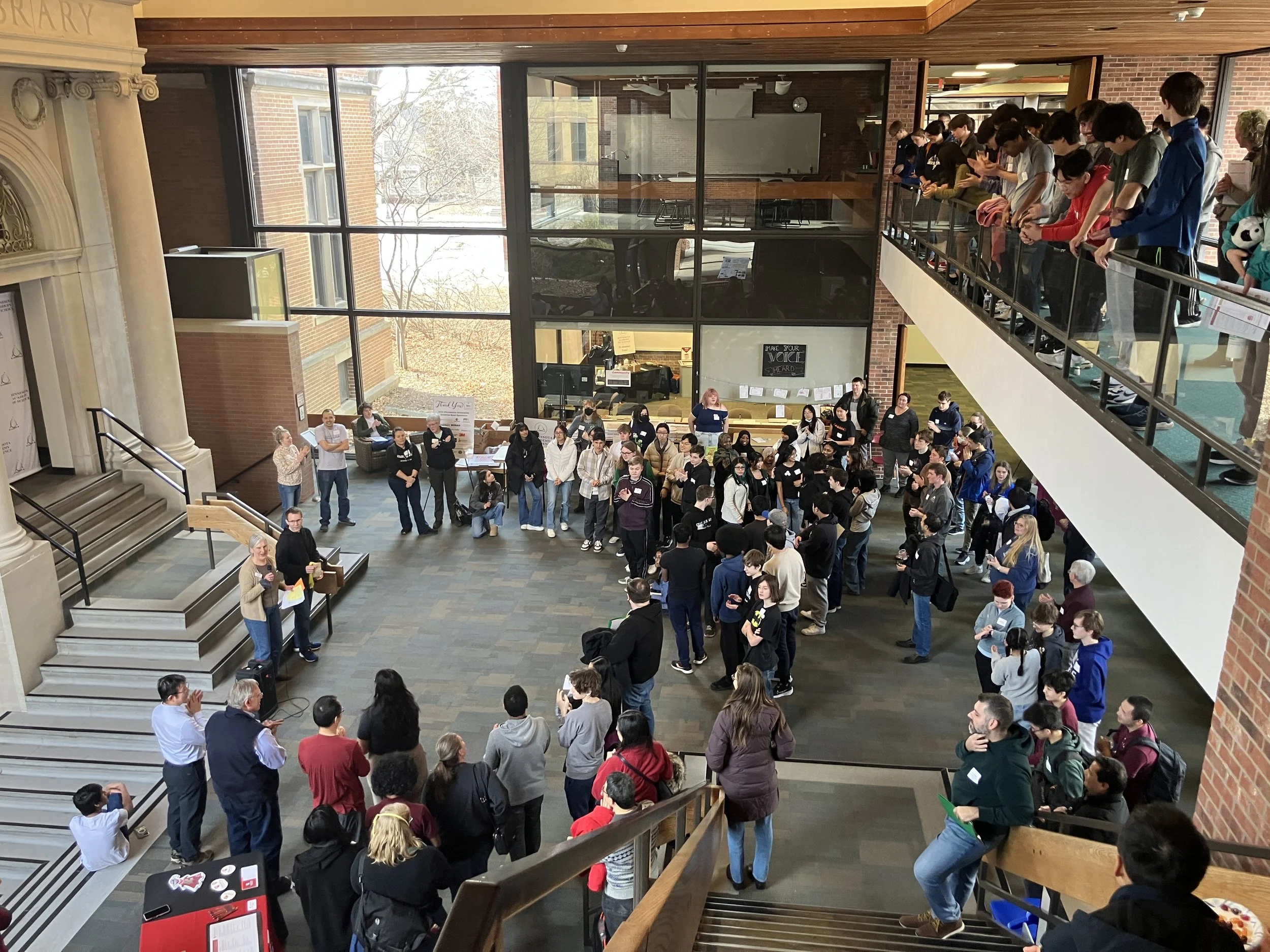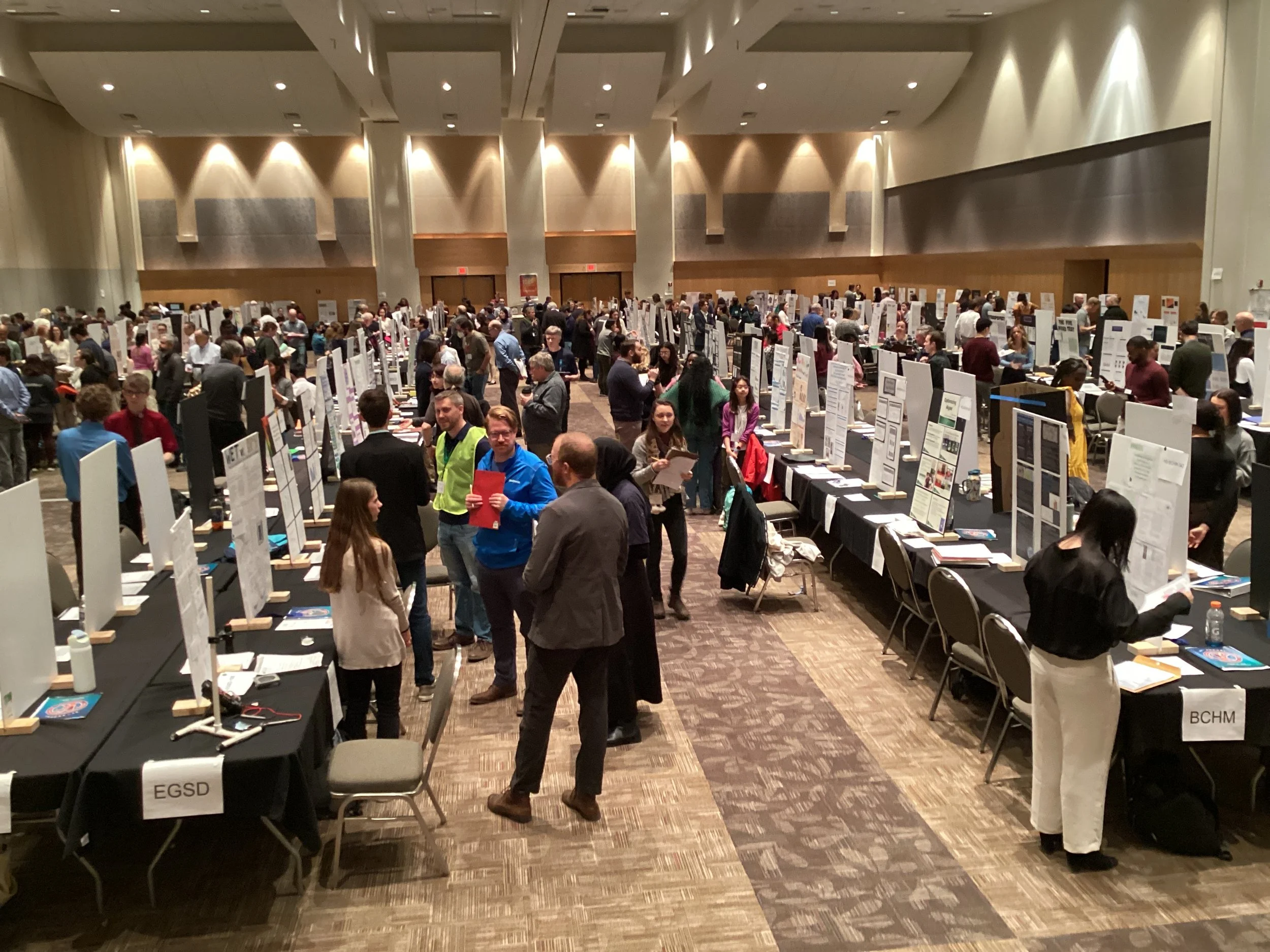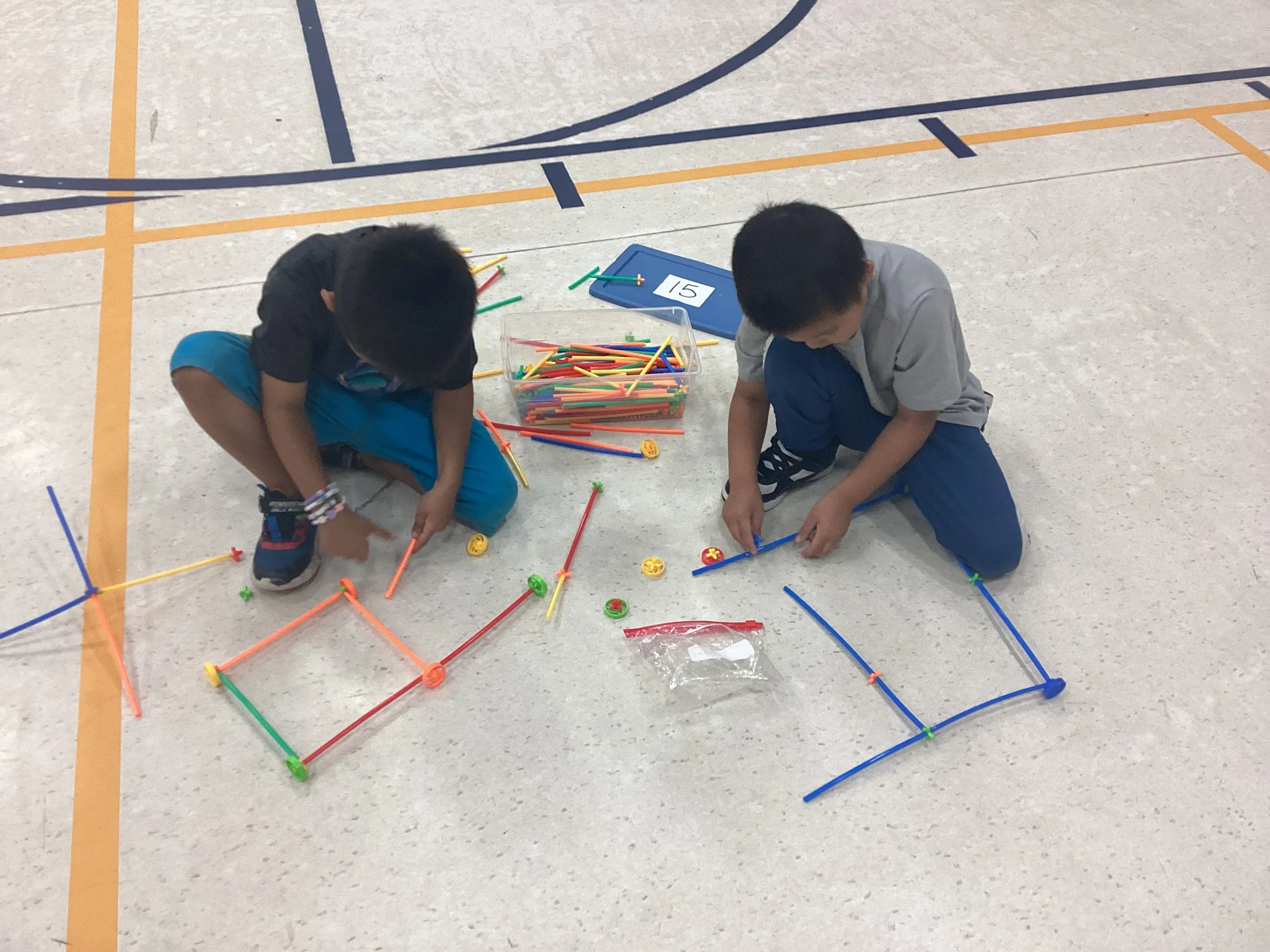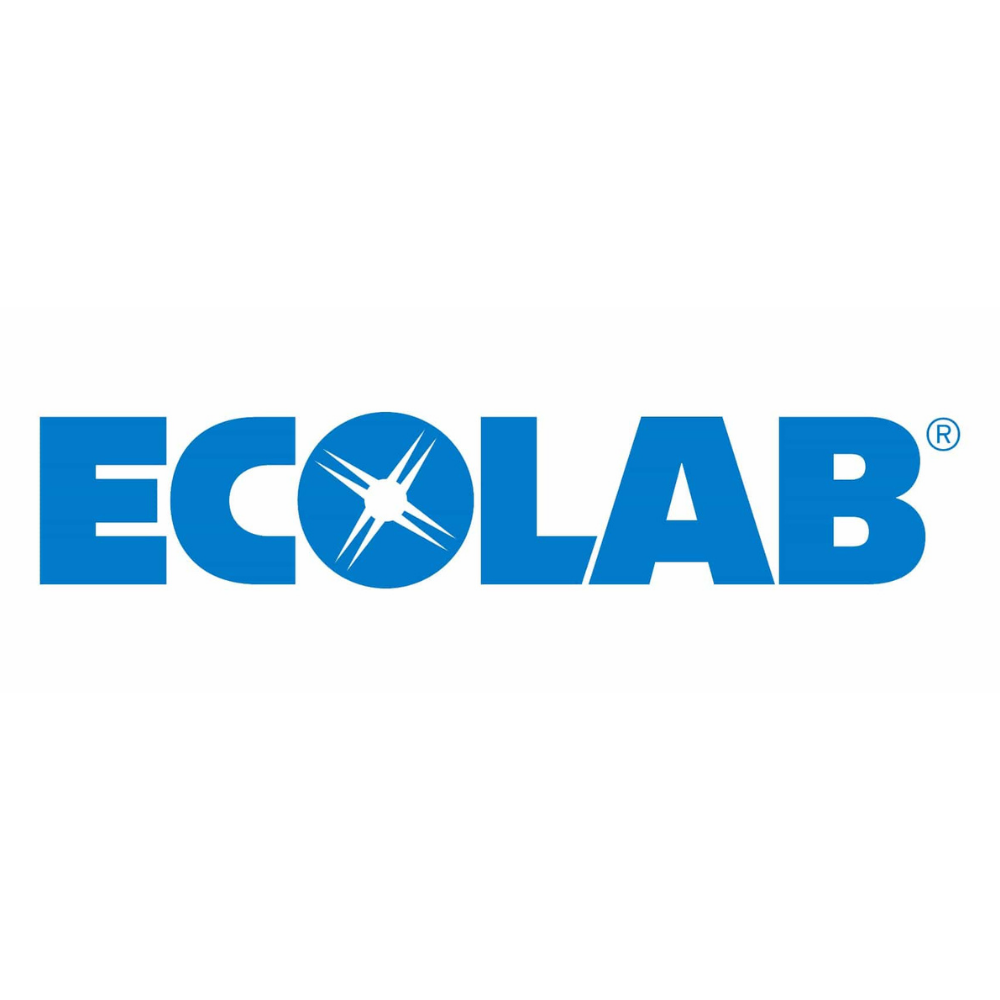This spring, the Minnesota Academy of Science was honored to present Rawan Hamade, a long-time science teacher at the Al-Amal School in Fridley, with a Seagate Excellence in Science Mentoring Award. In her eleven years of teaching, Ms. Hamade has motivated students to pursue excellence in STEM and has guided numerous students in developing Minnesota State Science and Engineering Fair projects.
The 2020 Seagate Excellence in Science Mentoring Award recognizes Ms. Hamade’s incredible ability to foster love of scientific research and discovery in her students, or as one of her students remarks: "Ms. Rawan helps us look at everyday things and explain the science behind it... she has always inspired us to be curious about what is going on around us." We caught up (virtually) with Ms. Hamade to learn about why she became a science teacher, how she motivates her students, the role that independent research plays in her students’ STEM learning, and more.
MAS: How did your own interest in STEM develop?
Ms. Hamade: My parents raised my siblings and myself with the sciences at the forefront of most of our family dinner conversations. My mother is a microbiologist and a science teacher, and my father is a physician. As is the custom of parents everywhere, my mom and dad loved to discuss the science behind the things we saw and heard. With much credit to my parents, my interest in the sciences began at a very young age. At 14 years old, I joined the University of Minnesota as a full-time student in the Post Secondary Enrollment Options program. Then, over the course of my undergraduate education, my college experience shaped my thoughts about research in STEM fields. During the time that I attended the University of Minnesota, the College of Biological Sciences revamped much of its curricula, and many of its physical classrooms to accommodate interactive learning, and research-oriented discussions of the sciences. I saw firsthand the transformation in scientific thought processes that resulted from these changes. It was quite the eye-opening experience, and I carried that with me into my teaching of the sciences.
What aspects of STEM education are you particularly interested in?
My greatest pleasure in teaching comes from encouraging my students to discuss with one another. I love listening to them explain concepts to one another, brainstorm ideas for each other's projects, or give helpful feedback about presentation materials. Systems that facilitate such interaction are built into the very foundation of scientific research, and this is, by far, what I love most about STEM education and research.
How do your students get started with their science fair projects?
Our school offers a science fair elective class for middle and high school students. As part of the class curriculum, students begin writing their research plans in September of every school year. However, some students elect to submit project proposals ahead of this time due to the nature of their planned experimentation (i.e. requiring a longer period of time, requiring the weather conditions provided by the summer season, etc.). Research plans are assessed by the teacher of the class as well as the school's Scientific Review Committee and Institutional Review Board. Feedback is given, and approval from the school's SRC/IRB is granted to all projects that fulfill the safety and ethics criteria set forth for pre-collegiate research by the Society for Science and the Public. Students then proceed to follow the scientific method in conducting their experimentation, or in engineering methods/devices and then testing them. The steps common to all projects and up to presentation of the project are assigned and graded as part of the elective class. Students present their findings at a school fair in the first week of February every year.
How do you motivate students if they get inconclusive results or experiments don’t turn out as ‘expected’?
Whenever and wherever possible, I draw from my own experience with research, as well as the experiences of well-known and respected scientists to inspire students throughout their research. I have found that this helps immensely. I also emphasize the process of research. We constantly reflect on protocol design, methods learned and practiced, and the personal growth of the student through it all. It is easier for students to keep from focusing only on results when they're taking time to reflect on the processes involved in their research regularly.
What aspects of Science Fair projects do you think best reflect what students would experience if they decide to pursue STEM in higher education or as a career?
As someone who has mentored students in research for a long time, I have heard back from many former students about the way that their involvement in science fair influenced their college research experience. I have made the following observations from my conversations with them.
First, students who try their hand at pre-collegiate research seem to feel more empowered and inspired to pursue college research opportunities. They have gained skills and confidence that enable them to initiate contact with researchers and collaborate with them on projects. Some students even discover, from science fair, interests in science that become lifelong goals. This also makes it easier for them to seek out the right resources and projects in college. Second, students who I have heard from are primarily grateful for their acquired skills in writing research proposals and papers. I have also noticed that students do not have a hard time carrying the confidence they gain from learning particular research methods into other learning. Research is so versatile that students who are involved in it, especially after some years, seem to know better how they learn.
The list of skills potentially gained from pre-collegiate research is long, but I would like to point out one last obvious skill - communication of findings. Students are great at learning from experience how to communicate their work, and how to deliver and receive feedback. Through science fair, they get a headstart in understanding the importance of peer review.
What is your reaction to winning the Seagate Excellence in Science Mentoring Award? How does this prize motivate you or inspire your work?
I was watching the livestream of the awards ceremony when my name was called for the award, and I saw my students pipe up in the chat box saying things like "That's my teacher!", and congratulating me. This meant to me so much more than I can describe, especially because I was missing being with them at school. Our school had been conducting online distance learning due to COVID-19 for a while by that time. It means a lot to me for my students to see that science mentoring is valued in our society. Some of my students are, in fact, interested in being teachers themselves in the future. It makes me happy that they know the value that is placed on their coveted profession. They understand this primarily from the benefit they derive from their teachers, but also from the recognition their teachers receive in society.
Many thanks to Ms. Hamade for her inspiring responses and her commitment to excellence in Minnesota STEM education. Looking forward to seeing amazing projects by your students at the 2021 Minnesota State Science and Engineering Fair!







